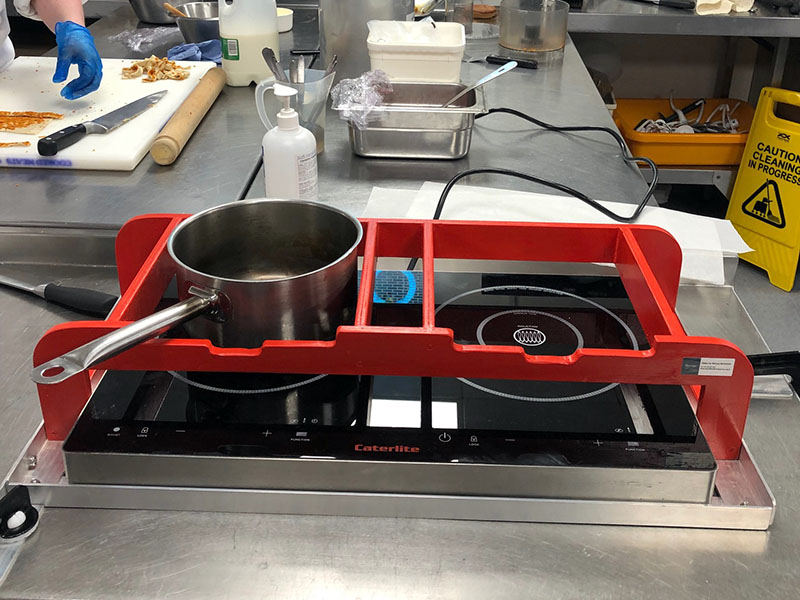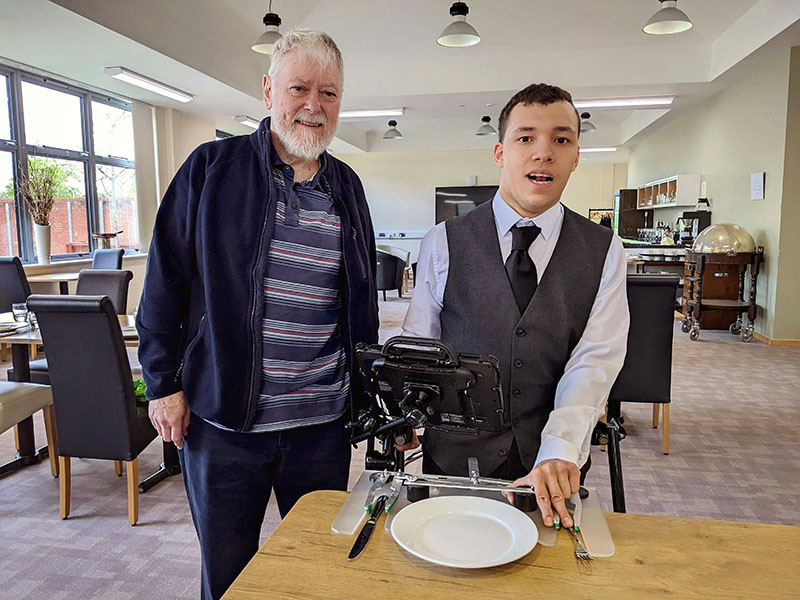Remap, the UK charity which empowers disabled individuals with customised equipment and gadgets, is making a pivotal difference in a Newbury College student’s life.
Rufus West, a determined catering student at Newbury College, can participate fully in his curriculum thanks to some innovative assistive devices designed by Remap Berkshire's volunteers, including Andy Pinkard and Rob Chicken.
Remap has been assisting people of all ages with disabilities and special needs for over 50 years, enabling them to live more independently and often improving their quality of life. The charity's network of over 900 skilled volunteers, many of whom are retired engineers, design and custom-make equipment when no commercial solutions are available. There is no charge for this 'MakeAbility' service.
Andy Pinkard, from Remap, said: “I first met Rufus when he was at school, where Remap worked to provide a variety of adaptations to help the students. I’m really pleased that we have been able to continue to support him to help achieve the very best from his catering course.”
Rufus, who has faced challenges in his catering course due to his lack of fine muscle control, is a beneficiary of this MakeAbility service. Some bespoke engineering has erased the barriers he faced with purpose-built equipment that enables him to prepare food and lay the table precisely and confidently.
“The equipment the College has received is outstanding,” said Rufus. “One of my favourite pieces is the safety adaptation that was made to my induction hob, as this allows me to prepare food just like any other student.”

The latest innovation from the Remap engineers is a table-laying template. Clamped to the table edge, the template holds crockery and cutlery in their approximate position. With a simple lever operation, Rufus can position them exactly before carefully removing the apparatus. The gadget enhances Rufus’s practical skills and nurtures his sense of independence and inclusion within the course.
The catering course at Newbury College offers a comprehensive curriculum covering units ranging from food preparation to understanding customer service in the hospitality industry. Students run a commercial restaurant on campus that is open to the public for lunches and special occasions, providing them with invaluable real-world experience.
“I have many friends with disabilities, and none of them have gotten an opportunity to train in a commercial kitchen,” Rufus continued. “My career will focus more on ‘Front of House’. One of the most important parts of preparation for service is laying the table. We aim for the highest standards possible, so presentation is crucial, and this table place setting template enables me to be as close to my peers as possible.”
“I don’t think there’s another piece of equipment like this in the world. If restaurants had table place setting templates, like mine, we could have hundreds of disabled people in the hospitality industry.”
Rufus's success story underscores Newbury College’s commitment to breaking down barriers and fostering inclusivity within its curriculum. This assistive technology has levelled the playing field for Rufus and opened doors to a promising future in the catering and hospitality industry as he progresses to Level 3 in September.
